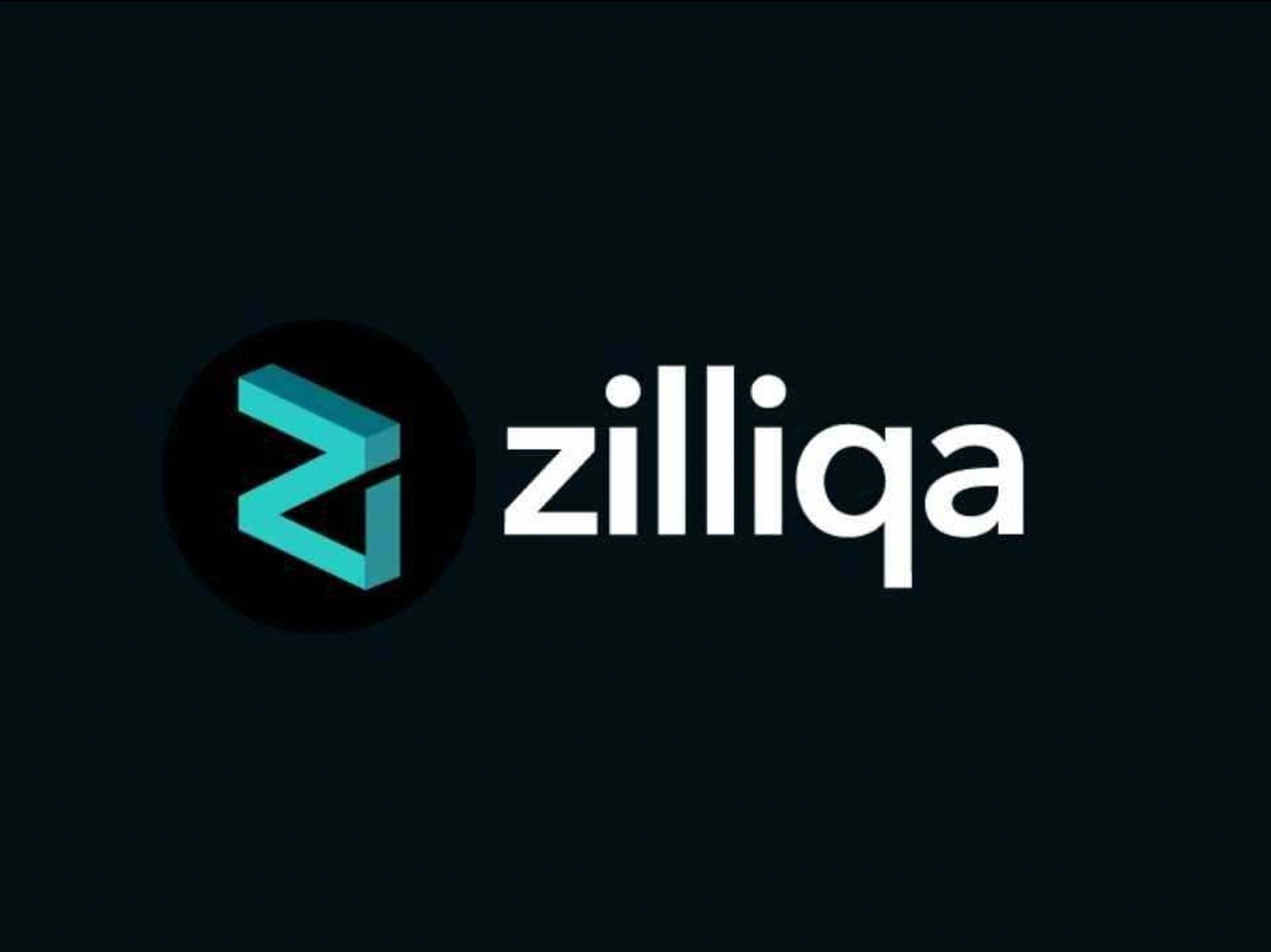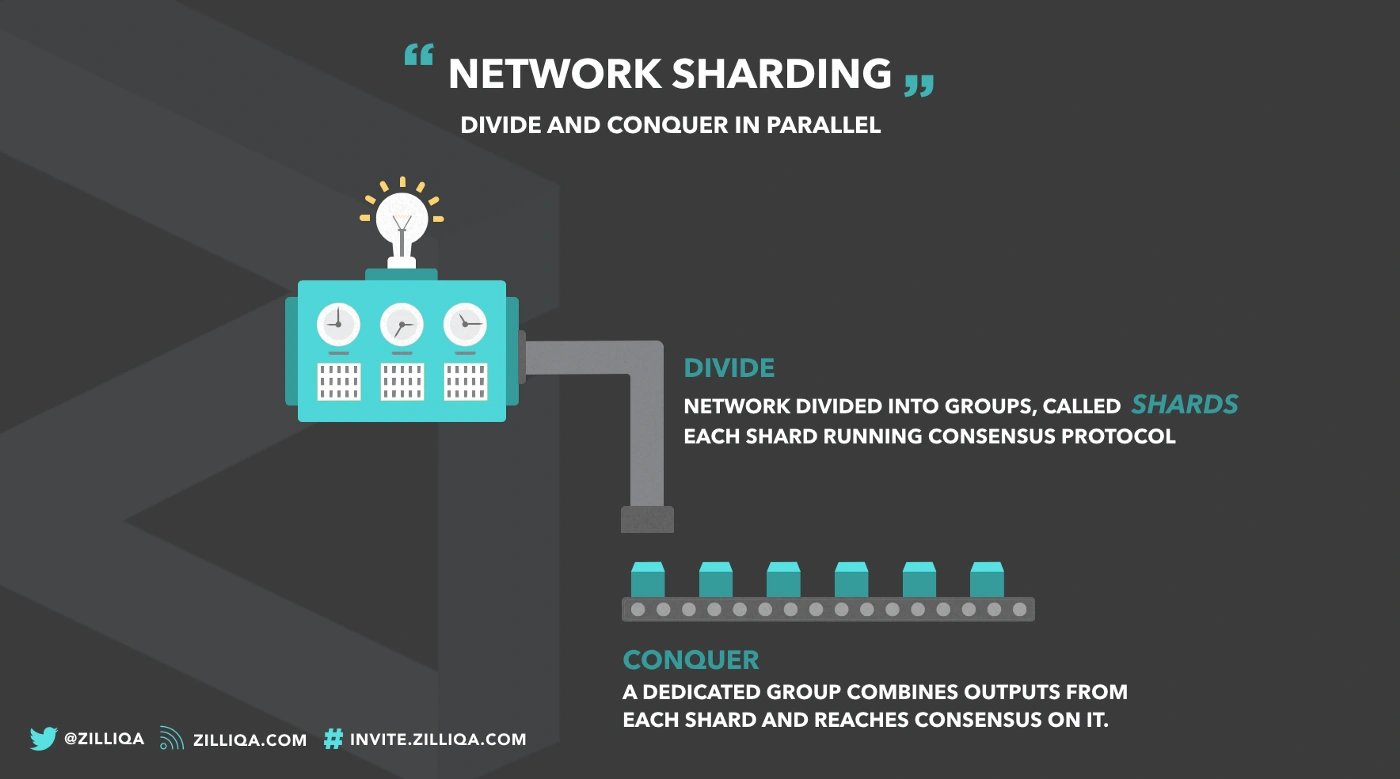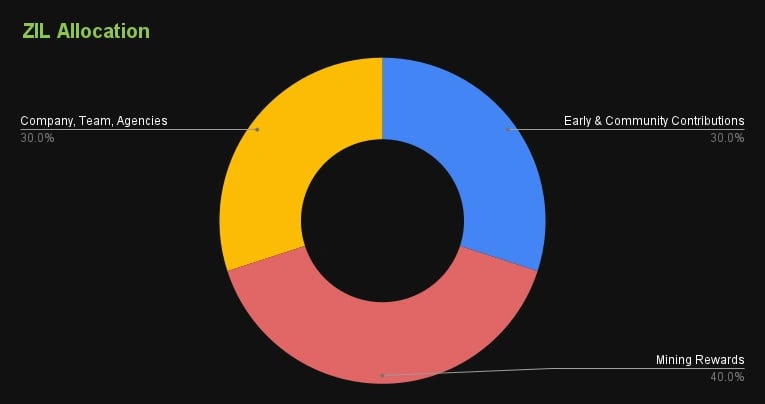위키 구독하기
Share wiki
Bookmark
Zilliqa
0%
Zilliqa
질리카는 확장성과 트랜잭션 처리 효율성을 강조하는 블록체인 플랫폼입니다. 샤딩 기술을 사용하여 질리카는 네트워크를 더 작은 노드 그룹(샤드)으로 나누어 트랜잭션을 동시에 처리합니다. 이는 이더리움의 확장성 및 트랜잭션 처리 제한에 대한 해결책으로 작용합니다. [1]
암리트 쿠마, 맥스 칸텔리아, 신슈 동, 프라티크 색세나 및 주자르 모티왈라는 2017년에 질리카를 공동 설립했습니다. 매트 다이어는 질리카의 CEO입니다. [1]
개요
질리카는 ERC-20 블록체인 플랫폼으로, 확장성, 효율성 및 보안 접근 방식으로 알려져 있습니다. 핵심적으로 질리카는 샤딩 기술을 구현하여 기존 블록체인 플랫폼의 확장성 문제를 해결합니다. 네트워크를 더 작은 노드 그룹(샤드)으로 분할하여 트랜잭션을 병렬로 처리함으로써 질리카는 처리량을 향상시켜 네트워크가 높은 트랜잭션 볼륨을 효율적으로 처리할 수 있도록 합니다. 이러한 확장성 향상은 실용적인 비잔틴 장애 허용(pBFT) 및 작업 증명(PoW)을 결합한 하이브리드 합의 메커니즘과 결합되어 잠재적인 공격에 대한 견고성을 보장하면서 분산화를 유지합니다. [2]
확장성 및 보안 외에도 질리카는 스마트 계약 지원을 통해 탈중앙화 애플리케이션(dApp) 구축을 위한 개발자 친화적인 환경을 제공합니다. 질리카는 자체 프로그래밍 언어인 Scilla(Smart Contract Intermediate-Level Language)를 활용하여 배포된 스마트 계약의 취약점을 최소화하여 보안을 강조합니다.[2]
Zilliqa 그룹
Zilliqa 그룹은 통합된 법인으로서 Zilliqa 네트워크에서 Web3 및 블록체인 애플리케이션 개발을 감독합니다. Zilliqa 블록체인 발전에 중점을 두고 Zilliqa Research에서 전환하여 자회사가 내부 기술을 활용한 혁신적인 서비스를 제공할 수 있도록 새로운 기업 구조를 확립하는 것을 목표로 합니다. 이러한 변화는 산업 전반에 걸쳐 원활한 네트워크 통합을 촉진하여 블록체인 기반 애플리케이션의 성장을 도모합니다. Roll1ng Thund3rz와 같이 이전에 Zilliqa 내에서 인큐베이팅되었던 회사는 이제 Zilliqa 그룹 산하에서 독립적으로 운영되며, 블록체인 개발 및 운영은 새로운 사용 사례를 지원하기 위해 일관성을 유지합니다. [3]
질리카 2
2023년 9월, 질리카 그룹은 질리카를 질리카 2로 업그레이드할 계획을 발표했습니다. 이 업데이트는 EVM 호환성을 포함하여 현재 버전과의 완전한 호환성을 유지하면서 네트워크 성능과 유틸리티를 향상시킵니다. 주요 개선 사항으로는 더 빠른 합의 알고리즘, 향상된 확장성 및 샤딩 기능, 개발자 중심 설계, EVM 기반 스마트 계약 지원 등이 있습니다. 또한 질리카 2의 샤딩 시스템은 프로그래밍 가능한 탈중앙화 및 개인 정보 보호 기능을 제공하여 특정 사용 사례에 맞게 샤드를 사용자 정의할 수 있습니다. [4]
기술
샤딩
질리카의 샤딩은 네트워크, 트랜잭션, 연산 샤딩을 포함하며, 네트워크 샤딩은 다른 샤딩 메커니즘이 구축되는 기본 계층입니다. [5]
- 네트워크 샤딩: 질리카의 샤딩은 네트워크를 샤드라고 하는 더 작은 그룹으로 나누어 병렬 트랜잭션 처리를 가능하게 합니다. 이 메커니즘은 확장성을 향상시키며, 이는 트랜잭션을 동시에 처리할 수 있는 10개의 샤드로 분할된 네트워크의 예에서 알 수 있습니다. 새로운 것은 아니며 데이터베이스 최적화에 뿌리를 두고 있지만, 이 개념은 질리카 팀 구성원이 공동 저술한 2015년 학술 논문에서 처음 제안되었습니다.
- 트랜잭션 샤딩: 트랜잭션 샤딩은 보낸 사람의 주소를 기반으로 트랜잭션을 특정 샤드에 할당하여 병렬 트랜잭션 처리를 가능하게 하는 것으로 시작됩니다. 이 접근 방식은 높은 처리량을 보장하며, 예를 들어 두 개의 샤드가 있는 네트워크에서 트랜잭션은 보낸 사람의 주소를 기반으로 S1 또는 S2로 전달됩니다. 그러나 이 방법은 특히 지불 트랜잭션을 처리하도록 설계되었습니다. 지불 및 스마트 계약 트랜잭션을 효과적으로 관리하기 위해 사용자 계정(사용자가 관리하고 계약 코드가 없음)과 계약 계정(계약 코드가 포함됨)을 기반으로 하는 분류 시스템이 구현됩니다.
노드
질리카 메인넷 내에서 다양한 노드는 고유한 역할을 수행하거나 특화된 서비스를 제공합니다. [6]
- 샤드 노드: 질리카 네트워크의 샤드 노드는 채굴 노드로 기능하며 네트워크 내의 클러스터 또는 샤드에 할당된 이름입니다. 동일한 샤드 내의 노드는 해당 샤드에 대해 지정된 트랜잭션을 처리하고 합의를 달성하여 샤드의 마이크로블록을 생성합니다. 샤드 노드는 각 DS 에포크 이후 기여에 대한 보상으로 $ZIL을 받습니다. DS 위원회는 작업 증명(PoW) 문제에 대한 솔루션 제출 성공 후 샤드 멤버십을 결정하며, 이는 DS 에포크당 한 번 발생합니다.
- 디렉토리 서비스(DS) 노드: DS(디렉토리 서비스) 노드는 채굴 노드로도 기능하며, 샤드 마이크로블록을 집계하여 트랜잭션 블록을 형성하고 각 DS 에포크 시작 시 DS 블록을 생성하는 추가적인 의무가 있습니다. DS 노드는 DS 에포크 종료 시 샤드 노드와 마찬가지로 $ZIL 보상을 받습니다. DS 위원회는 이러한 노드로 구성되어 끊임없이 변화하는 샤드에 비해 여러 에포크에 걸쳐 안정성을 제공합니다. 더 높은 난이도의 작업 증명에 의해 결정되는 위원회 멤버십은 각 에포크마다 부분적으로 갱신됩니다. DS 노드의 임기는 DS 에포크 동안의 성능에 영향을 받습니다.
- 룩업 노드: 룩업 노드는 전체 노드로 기능하며 트랜잭션, 마이크로블록, 트랜잭션 블록 및 DS 블록을 포함하여 DS 및 샤드 노드에서 생성된 전체 블록체인 데이터를 저장합니다. 이는 네트워크와 동기화하거나 네트워크에 참여하려는 노드를 위한 데이터 소스 역할을 합니다. 또한 룩업은 트랜잭션을 샤드 및 DS 위원회에 배포합니다.
- 시드 노드: 룩업 노드와 마찬가지로 시드 노드는 전체 노드로 기능하지만 트랜잭션을 샤드 및 DS 위원회에 직접 보내지 않습니다. 주로 트랜잭션 생성을 포함한 JSON-RPC 요청을 처리합니다. 시드 노드는 정기적으로 트랜잭션을 번들링하여 샤드 및 DS 위원회에 최종 배포하기 위해 룩업 노드로 전달합니다.
- 스테이킹된 시드 노드(SSN): 스테이킹된 시드 노드(SSN)는 커뮤니티 JSON-RPC 요청을 처리하기 위해 스테이킹 파트너가 운영하는 시드 노드입니다. 이 서비스에 대한 대가로 SSN은 성능에 따라 $ZIL로 스테이킹 보상을 정기적으로 받습니다.
Scilla
Scilla는 Zilliqa 블록체인을 위해 맞춤화된 스마트 컨트랙트 중간 레벨 언어이며, 스마트 컨트랙트 안전에 중점을 둡니다. 언어 수준에서 취약점을 해결하고 형식 검증을 지원하여 애플리케이션 보안을 강화하기 위한 구조화된 접근 방식을 채택합니다. 공식화된 의미 체계 및 Coq 증명 보조 도구 통합과 함께 개발된 Scilla는 기계화된 증명을 위해 Coq의 고급 종속 타입 이론을 활용합니다. Scilla의 주목할 만한 설계 선택에는 컨트랙트 내에서 계산과 통신을 분리하고, 컨트랙트 내 계산을 위한 독립 실행형 전환을 보장하며, 예측 가능한 컨트랙트 동작을 위해 순수 표현식, 불순한 로컬 상태 조작, 블록체인 반영을 구별하는 것이 포함됩니다. [7][8]
ZilStream
ZilStream은 Zilliqa 생태계 내에서 시장 추적 및 데이터 제공업체로서, 커뮤니티에 정확하고 시기적절한 시장 데이터, 뉴스 및 통찰력을 제공합니다. 2021년 2월에 설립된 ZilStream은 수백만 명의 사용자에게 직접 서비스를 제공하고 있으며, 개발자, 트레이더 및 기업이 실시간 및 과거 시장 정보에 액세스하는 데 사용하는 API를 통해 서비스를 제공하고 있습니다. TradingView 기술을 활용하여 ZilStream은 포괄적인 가격 차트를 제공하여 전 세계 트레이더와 투자자를 위한 강력한 플랫폼을 제공합니다. [9]
생태계
ZilSwap
Zilswap은 Zilliqa 기반의 탈중앙화 거래소 (DEX)입니다. 실험적인 싱크 탱크 연구소인 Switcheo Labs에서 개발했으며, Uniswap과 유사한 허가 없는 유동성 프로토콜에서 상수 곱 자동화 마켓 메이커를 사용합니다. 사용자는 지갑에서 Zilliqa 블록체인에서 직접 ZIL 또는 ZRC 토큰을 거래하거나 유동성 풀에 토큰을 기여하여 마켓 메이커로서 수동적으로 수익을 얻을 수 있습니다. [10]
ZilBridge
ZilBridge는 Zilliqa, Switcheo Labs 및 PolyNetwork 간의 협업 프로젝트이며, Carbon Protocol의 지원을 받아 Zilliqa와 이더리움 메인넷 네트워크 간의 자산 브리징을 용이하게 하며, 추가적인 체인 지원을 계획하고 있습니다. [11]
ZILHive
ZILHive는 Zilliqa의 생태계 성장 부문으로, Zilliqa의 블록체인 플랫폼에서 분산형 애플리케이션 개발을 촉진하기 위해 2019년에 설립되었습니다. 학생부터 업계 전문가에 이르기까지 모든 단계의 개인에게 다양한 프로그램을 제공합니다. ZILHive는 블록체인 애플리케이션 개발을 지원하기 위해 ZILHive 학생 실습, 인큐베이터 프로그램, 액셀러레이터 프로그램 등 다양한 프로그램을 제공합니다. 또한 Zilliqa 플랫폼에서 유망한 프로젝트를 지원하기 위해 5백만 달러의 보조금이 제공됩니다. [12]
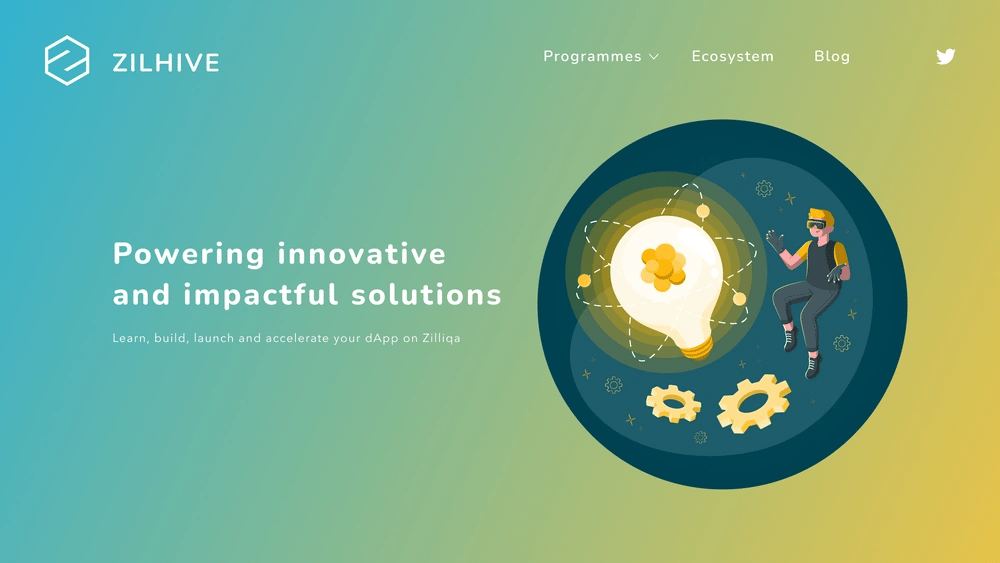
메타마인즈
메타마인즈(이전 명칭: 메타폴리스)는 최초의 MaaS(Metaverse-as-a-Service) 플랫폼 제공업체입니다. 메타마인즈는 공간 웹 기술을 활용하여 고객, 고객 상호 작용 및 참여를 위한 몰입형 메타버스 경험을 창출합니다. 다중 테넌트 아키텍처를 통해 다양한 사용자 그룹이 동일한 플랫폼 인프라 및 제품 라인을 공유하면서 개인화된 메타버스 경험을 즐길 수 있습니다. 확장성, 플랫폼 상호 운용성 및 고성능을 위해 설계된 메타마인즈는 현재 메타버스 개발 병목 현상을 해결하고 미래 메타버스의 표준을 설정하는 것을 목표로 합니다. 또한 고객에게 개인적인 개념 증명 테스트와 접근성 및 채택을 향상시키기 위한 구독 기반 비즈니스 모델을 제공합니다. [13]
ZIL
ZIL은 Zilliqa 블록체인의 기본 토큰 역할을 하며, 금융 서비스에서 NFT 마켓플레이스에 이르기까지 분산형 애플리케이션을 지원합니다. Zilliqa 생태계 내의 모든 dApp 및 플랫폼 서비스와의 상호 작용을 가능하게 합니다. ZIL은 상품 및 서비스 결제, NFT 구매 및 판매 등 다양한 목적으로 활용될 수 있습니다. [14]
토큰 경제학
총 공급량은 21,000,000,000 ZIL입니다. 초기 토큰 출시일은 2017년 8월 31일이었으며, ZIL의 초기 배분은 다음과 같습니다: [15]
- 30.00%는 초기 및 커뮤니티 기여에 할당
- 40.00%는 채굴 보상에 할당
- 30.00%는 회사, 팀, 에이전시에 할당
Governance ZIL (gZIL)
2020년 10월 14일에 출시된 Governance ZIL (gZIL)은 Zilliqa 네트워크의 거버넌스 토큰 역할을 하며, 장기 토큰 보유자가 생태계 결정에 참여할 수 있도록 합니다. 각 gZIL 토큰은 하나의 투표권을 나타내며, 보유량에 따라 투표력이 확장됩니다. [16]
파트너십
Google Cloud
2023년 9월 13일, Zilliqa 그룹은 Google Cloud와 다년간의 전략적 제휴를 발표했습니다. 이 협력은 Zilliqa 레이어 1 블록체인 프로토콜의 확장성, 복원력 및 데이터 가용성을 향상시키는 것을 목표로 합니다. Google Cloud의 참여로 Zilliqa 그룹 내 및 더 넓은 생태계 전반의 벤처 기업은 다양한 Web3 서비스와 Zilliqa 블록체인에 구축된 분산형 애플리케이션(dApps)을 지원하는 더욱 강력한 플랫폼의 이점을 누릴 것으로 예상됩니다. [17]
Google Cloud는 기존의 28개 SSN 운영자 세트에 합류하여 Zilliqa 네트워크의 스테이킹된 시드 노드(SSN) 운영자가 되었습니다. 이 역할에서 Google Cloud는 노드 인프라 호스팅 서비스를 제공하는 동시에 네트워크 전반의 트랜잭션 유효성 검사에 기여하여 분산화, 보안 및 거버넌스에 대한 참여를 촉진합니다. 또한 Zilliqa 그룹은 Google Cloud를 전략적 클라우드 제공업체로 선정하여 Google Cloud의 개방적이고 안전하며 확장 가능하고 에너지 효율적인 인프라 및 서비스를 활용하여 블록체인의 유연성, 복원력 및 데이터 가용성을 향상시킬 계획입니다. [17][18]
Google Cloud와의 전략적 제휴는 단순한 기술 협력을 넘어 우리 그룹의 벤처 기업과 수익 창출 조직의 야망을 더욱 발전시키기 위한 전략적 제휴입니다. Google Cloud의 인프라 전문 지식은 스테이킹된 시드 노드 파트너로서의 역할과 결합되어 Zilliqa 그룹 회사 내 및 더 넓은 생태계 전반에서 탁월함에 대한 우리의 약속을 강조합니다. 함께 우리는 Web3 공간에서 새로운 혁신과 성장의 장을 열고 있습니다. - Zilliqa 그룹 영업 책임자, Matt Dyer.
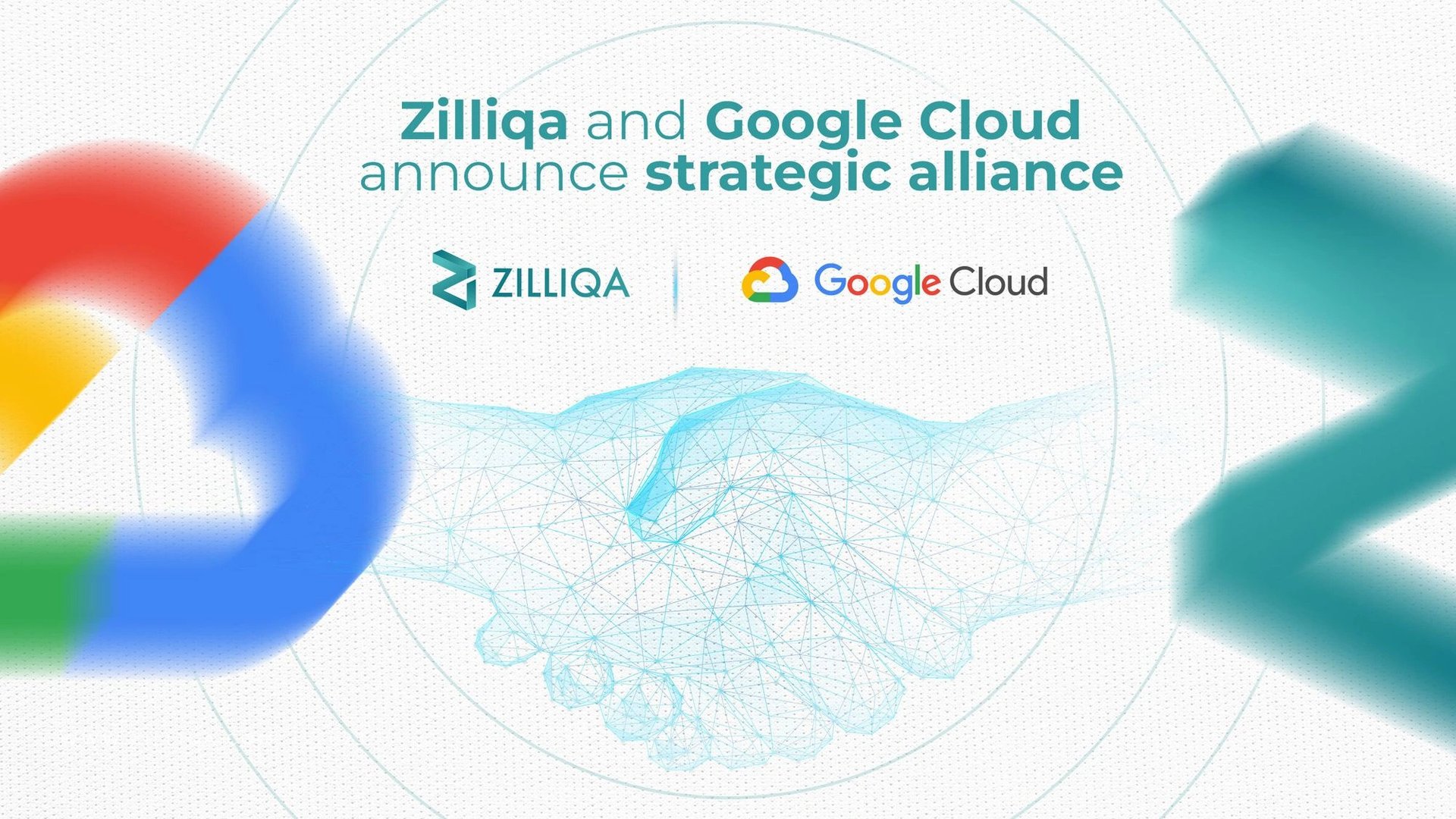
GMEX ZERO13
2023년 9월, 질리카는 GMEX 그룹 및 디지털 기후 핀테크 집계 생태계인 ZERO13과의 파트너십을 발표하고 탄소 상쇄 플랫폼을 출시했습니다. 이 플랫폼은 소매 고객이 기업 환경 이니셔티브에 참여하도록 장려할 것입니다. 질리카 그룹과 GMEX ZERO13은 블록체인 기반 통화 EVP를 사용하여 탄소 배출권 상쇄를 나타내는 플랫폼을 제공할 것입니다. 상품이나 서비스를 구매할 때 질리카와 제휴한 브랜드의 고객은 질리카 블록체인에서 EVP 토큰을 받아 다양한 환경 이니셔티브에 자금을 지원하여 탄소 발자국을 직접 상쇄할 수 있습니다. [19]
ChainUp
2023년 10월 31일, 질리카 그룹은 ChainUp과의 파트너십을 발표하여 Web3 인프라 제공을 확장하고 로열티, 게임, 토큰화 및 메타버스 프로젝트 관련 파트너십을 강화했습니다. 이 협력의 결과로 ChainUp은 질리카 그룹의 산업 등급 인프라 파트너가 되어 다양한 산업 전반에 걸쳐 Web3 통합을 제공하는 능력을 강화하고 암호화폐 거래소, Web3 기업 및 전 세계 투자자와의 광범위한 연결을 통해 네트워크의 시장 접근성을 확장했습니다. [20]
파트너십의 일환으로 ChainUp은 공용 질리카 네트워크에서 Staked Seed Node(SSN)를 운영하여 탈중앙화에 기여하고 거래 내역을 보관하며 최종 사용자에게 서비스를 제공했습니다. [20]
잘못된 내용이 있나요?
